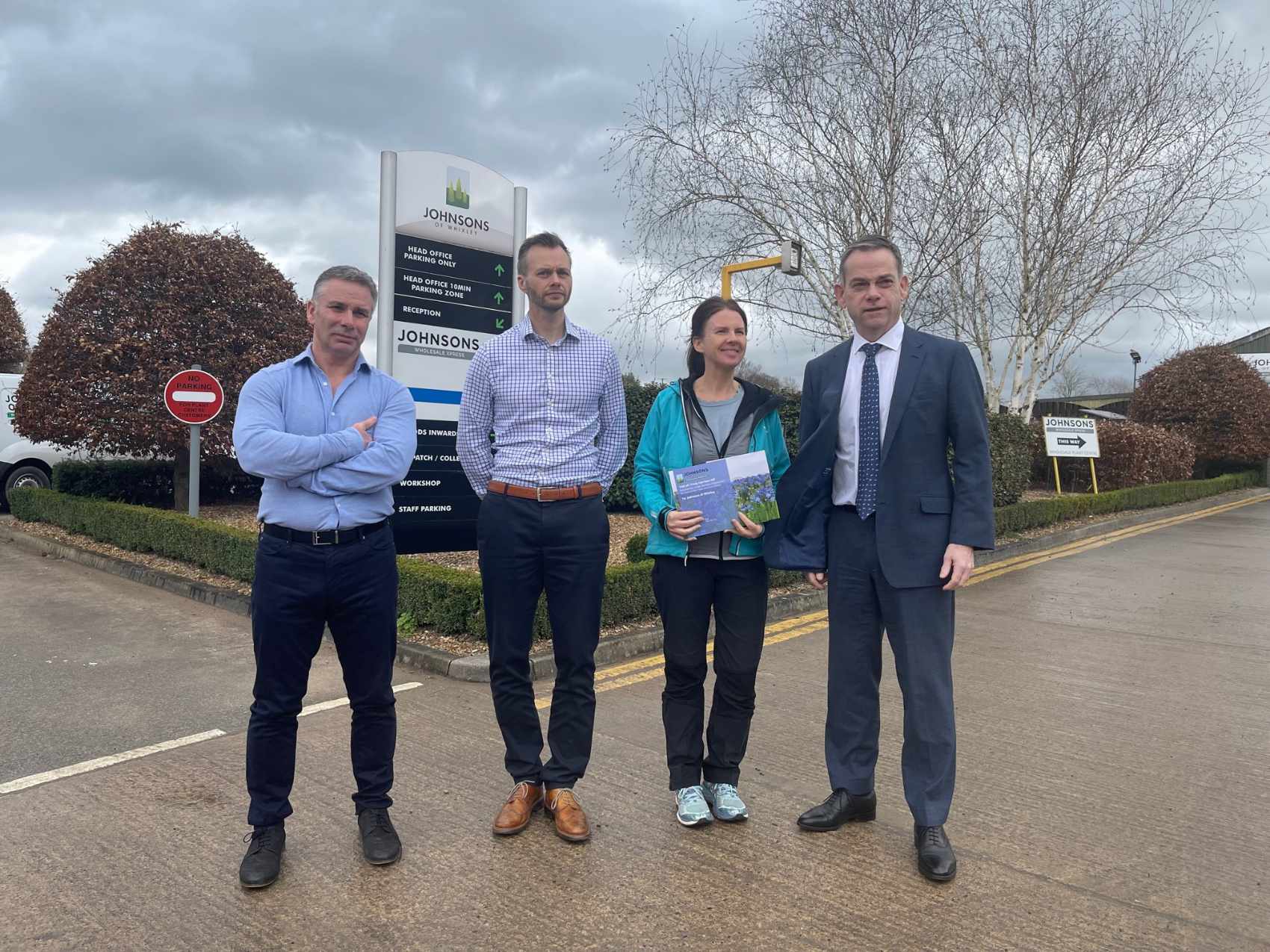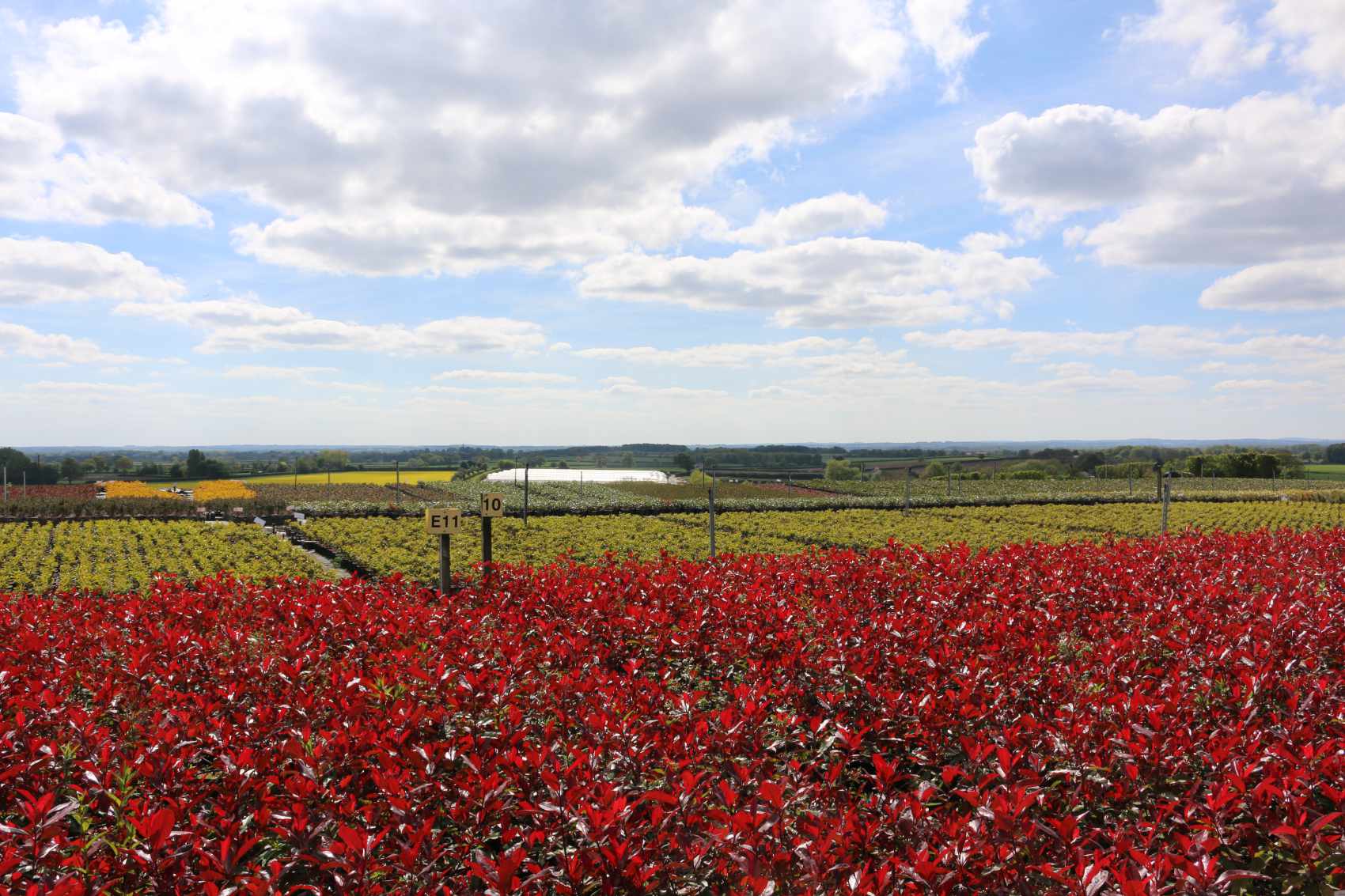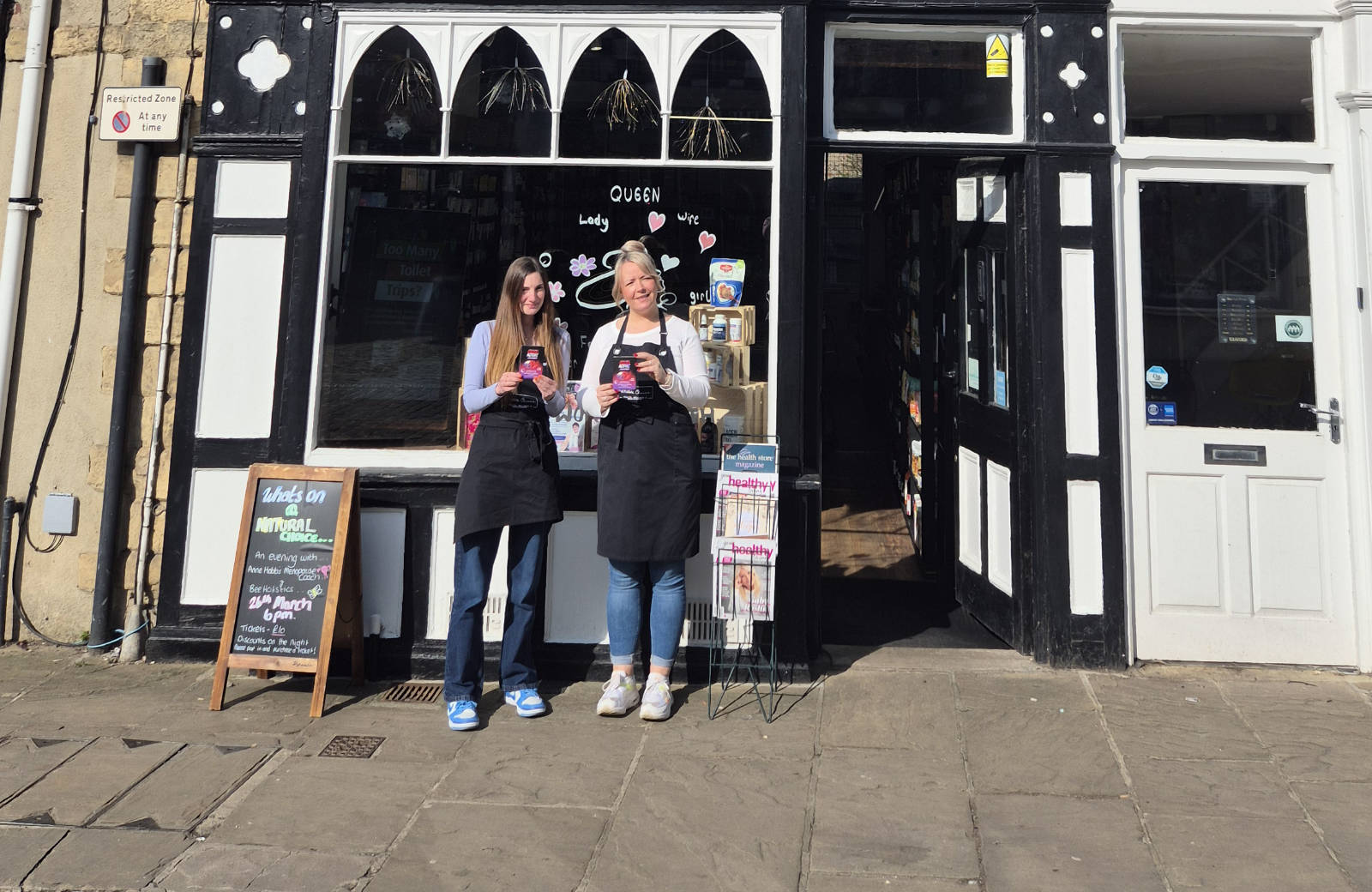One of the UK’s largest plant nurseries Johnsons of Whixley hosted Trudy Harrison MP, Parliamentary Under Secretary of State in the Department for Environment, Food and Rural Affairs, along with RT Hon Nigel Adams Conservative MP for Selby and Ainsty and Lee Lyons, Civil Servant for Defra on Thursday 23 March 2023 to discuss topical issues within the Ornamental Sector.
The nursery situated in the Vale of York discussed key challenges they and others in the sector are facing, including the ‘retreat from peat’, the scaling up of UK production of native and ornamental tree and shrub production, commercial importing and rising costs associated with inflation.
The retreat from peat is a political ‘hot potato’ with recent announcements suggesting an accelerated timescale. It is estimated that between 1.7 and 2.0 million cubic metres of peat will have to be replaced with sustainable alternatives in the industry.
The industry has been hit by several challenges in recent years, including Brexit, Plant Health constraints, the pandemic and now the peat ban, for some peat-base products, which have all come at significant cost to those in the industry.
Group Managing Director Graham Richardson said:
It was an honour to host the minister and other key individuals to discuss the key Horticultural Challenges facing our sector, the importance of our sector was acknowledged, and the challenges that the ‘retreat from peat’ brings in terms of a practical growing media alternative (in sufficient volume) and the associated timings are better understood.
All parties who attended the meeting agreed on further dates for future discussions and consultation regarding the ‘retreat from peat’ and other challenges within the sector.
The UK Government has confirmed a ban on all peat-based gardening products will not be implemented until 2030.
Defra (Department for Environment Food and Rural Affairs) has confirmed that while some peat-containing products will be banned from shelves in 2027, others will be exempt from a ban until 2030. This means that for some professional growers, peat use will still be permitted for the next 7 years.
Rosie Snowden, Peat Programme Manager at Yorkshire Wildlife Trust says:
Whilst we welcome the move towards a ban, this simply isn’t good enough – the industry has already had over two decades to make adjustments and is now being allowed another seven years of habitat destruction and carbon emissions.
There is no commercial peat extraction in Yorkshire anymore but all peat comes from somewhere and peat everywhere is important. These astonishing wild places deserve our respect and protection.
The public is overwhelmingly in favour of a ban and this legislation should be giving consumers confidence they are buying peat-free products everywhere rather than actively needing to seek them out.
Ailis Watt, Peat Policy Officer at The Wildlife Trusts says:
Today’s announcement is bitterly disappointing. Last year we welcomed the news that the UK Government would ban the sale of bagged peat compost in England by the end of 2024. The Wildlife Trusts hoped that a ban on all peat products would follow shortly after this date.
The destruction of irreplaceable peatlands for gardening should have been outlawed long ago. These precious habitats are vital for nature and for our climate because they store vast amounts of carbon and are home to some of the UK’s most special wildlife. We need to see far greater levels of ambition if the UK is to relinquish its status as one of the most nature-depleted countries on Earth or come close to achieving net zero emissions by 2050. Peatlands must be better protected as a matter of urgency.
The announcement will allow a large proportion of professional growers to continue to use peat to grow plants and mushrooms. According to data from the Growing Media Monitor, plug plants and mushroom production alone made up 42% of all peat used by professional growers in 2021.
For decades the UK Government set voluntary targets to tackle the horticulture industry’s use of peat and its corresponding habitat destruction. The Wildlife Trusts have repeatedly urged the Government to enforce bans for the last 30 years.
The Wildlife Trusts are calling upon the UK Government to:
- Ban the extraction and commercial trade of peat immediately
- Ban all horticultural uses of peat as soon as parliamentary timeframes allow, or by 2024 at the latest
- Restore all bogs damaged by the removal of peat by 2030
Ailis Watt continues:
The decision to allow the sale of peat-containing products to continue until 2030 does not reflect the value of peatlands – here and abroad – and is at odds with this Government’s manifesto commitment to ‘deliver the most ambitious environmental programme of any country on earth’.
It contradicts the notion that gardening is an activity which is beneficial to nature and places a burden of responsibility on the consumer to ensure they are not inadvertently buying environmentally destructive peat-based products.








